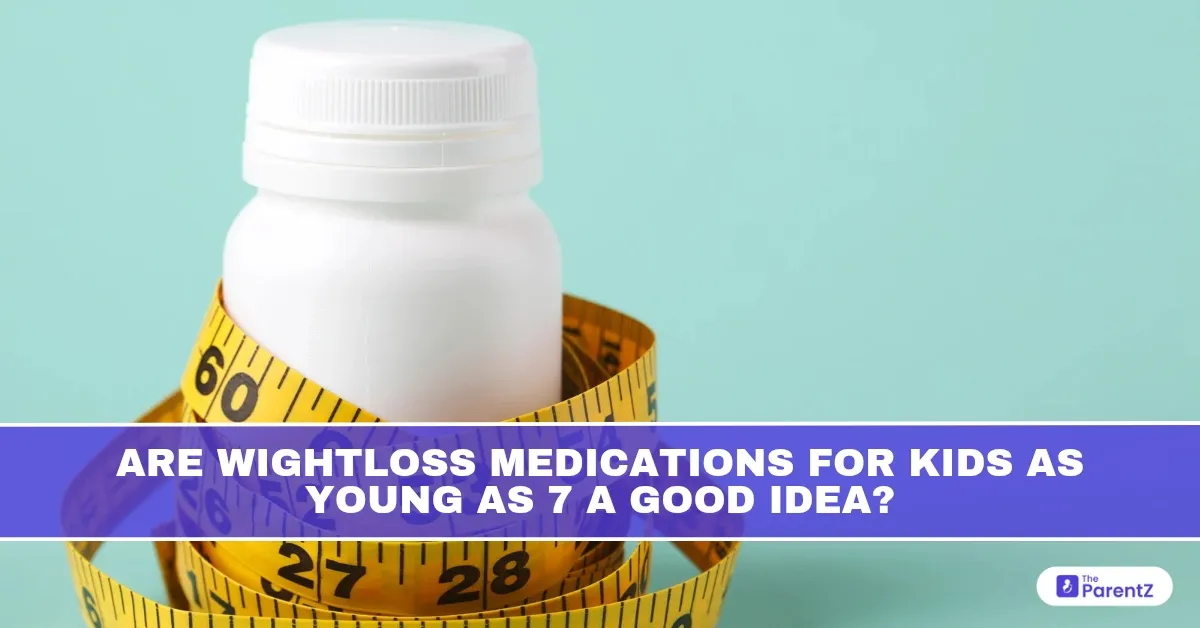This is a Conversation Every Parent Needs to Have
As a parent, watching your child struggle with weight, whether physically, emotionally, or socially, can be heartbreaking. With rising rates of childhood obesity, many families are searching for real solutions. But when the news broke that weight loss medications could be prescribed for kids as young as 7, it raised more than a few eyebrows and an avalanche of questions.
Is it safe? Is it necessary? Is there a better way?
Let’s unpack the science and the story behind this medical recommendation.
Why Is This Even Being Considered?
Childhood obesity has reached epidemic levels. According to the Centers for Disease Control and Prevention (CDC), nearly 1 in 5 children in the U.S. aged 6 to 11 is obese. Obesity in children is not just about appearance, it’s about serious health risks like:
- Type 2 diabetes
- High blood pressure
- Sleep apnea
- Joint problems
- Early signs of heart disease
- Mental health struggles (low self-esteem, depression)
In response, the American Academy of Pediatrics (AAP) released new clinical guidelines in 2023 recommending early and intensive intervention, including FDA-approved weight loss medications for children as young as 7, and bariatric surgery for adolescents in some cases.
The aim is not to medicalise childhood but to address a serious medical condition early, before it escalates.
What Medications Are Being Used?
Several medications have now been studied and approved for pediatric obesity, including:
- Orlistat (Alli, Xenical) – approved for children 12+
- Liraglutide (Saxenda) – a GLP-1 agonist approved for kids 12+, used to regulate appetite
- Phentermine/topiramate (Qsymia) – approved for kids 12+
- Setmelanotide (Imcivree) – used in rare genetic obesity disorders
- Semaglutide (Wegovy) – a GLP-1 analog recently studied in adolescents
Notably, these medications are not typically prescribed for cosmetic reasons, but for medically significant obesity with comorbidities like diabetes or high cholesterol.
Is It Safe for a 7-Year-Old?
Here’s the nuance: most weight loss medications are still only approved for children aged 12 and up, but there is growing off-label consideration in younger kids under careful medical supervision.
PubMed-reviewed studies have shown that GLP-1 agonists like liraglutide and semaglutide can lead to significant weight loss in adolescents, with improvements in blood sugar and cardiovascular risk. However, side effects like nausea, vomiting, and abdominal pain are common, and long-term safety in children is not fully established.
More importantly, medications must be part of a comprehensive plan—including behavioral therapy, dietary support, and family involvement.
What Pediatricians Say
According to Dr. Sandra Hassink, medical director of the AAP Institute for Healthy Childhood Weight:
“We don’t treat high blood pressure or diabetes in children by just telling them to eat better and exercise—we use all the tools we have. The same should apply to obesity.”
This doesn’t mean every child with excess weight needs medication. It means that for severe obesity affecting physical or mental health, medication might be one of many tools to help that child lead a fuller, healthier life.
What Parents Should Consider
If your child is struggling with weight and you’re exploring medical options, consider the following:
- Get a comprehensive evaluation: Rule out underlying conditions and assess BMI, growth charts, and comorbidities.
- Try lifestyle changes first: Nutritional counseling, physical activity, and behavioral therapy often make a difference, especially when the entire family is involved.
- Understand the risks and benefits: Every medication has side effects. Ask your pediatrician to explain the clinical reasoning behind the recommendation.
- Mental health matters too: Children with obesity are at risk of bullying and low self-esteem. Addressing emotional well-being is just as important as physical health.
My Perspective as a Health Professional
As someone deeply passionate about child health, I believe in meeting kids where they are—not where we wish they were. For some families, this might mean medication; for others, it’s therapy, education, or simply more support.
The goal is not to shame or rush. It’s to help a child grow up healthy, confident, and supported—physically and emotionally.
Conclusion: One Size Doesn’t Fit All
So, are weight loss medications for kids as young as 7 a good idea?
Not always, but sometimes, yes. For children with severe obesity and related health risks, early medical intervention could be life-changing. But it’s a decision that should be made case by case, with compassion, evidence, and care.
As parents, we owe it to our children to stay informed—not fearful. And to remember that weight is never just about numbers—it’s about health, happiness, and a future full of possibility.





Be the first one to comment on this story.